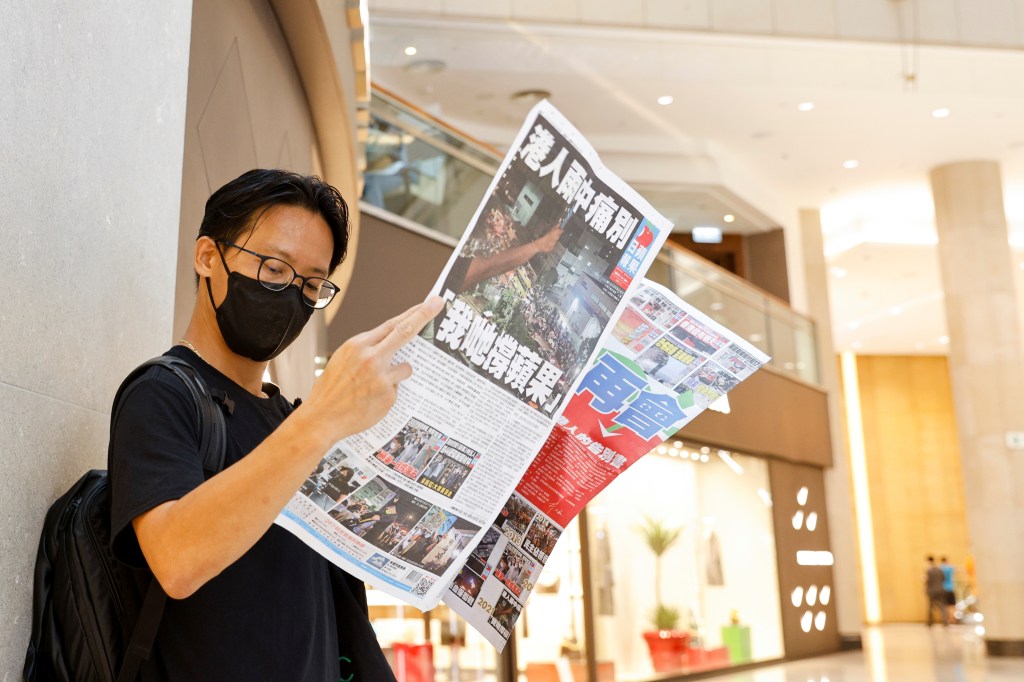The Hong Kong Journalists Association (HKJA) found that authorities use the national security law to silence journalists, systematically limit the media’s ability to access to public databases, and force public and private broadcasters to minimize their political content and, in the case of at least one public broadcaster, spread government propaganda in its annual report, titled “Freedom in Tatters,” published July 15.
“An air of fear and anxiety has blanketed the city,” Chris Yeung, HKJA’s chairman from 2017 to 2021, said in the report. “With the political ‘red line’ almost everywhere, pressure on free thinking is mounting. Chilling effect and a culture of censorship are growing.”
In the most high-profile example of the use of China’s national security law to target journalists, the report recounted the imprisonment since August 2020 of pro-democracy newspaper Apple Daily founder Jimmy Lai, whom CPJ will honor with the 2021 Gwen Ifill Press Freedom Award. On June 23, Next Digital, which owned Apple Daily,announced that it would cease operations after its bank accounts were frozen and five of its executives were arrested for allegedly violating the same law.
The report also found that various government departments began restricting journalist access to public databases as early as 2019. In April, a court in Hong Kong convicted and fined journalist Choy Yuk-ling of giving false statements to obtain public record information during research for an investigative documentary, as CPJ documented at the time.
During the anti-extradition bill protests in mid-2019, the report noted, the Hong Kong police force repeatedly claimed that there were “fake reporters” among protesters and asked HKJA to “work with the government and come up with some on-the-spot press identification arrangements such as wearing government-issued credentials or specified clothing.” In its report the HKJA said that such an arrangement would potentially allow authorities to deny giving accreditation to “media outlets who are deemed unfriendly.”
The report also discussed the September 2020 Hong Kong police public relations branch announcement that police would no longer recognize press passes issued by media workers’ unions, including HKJA. The police revised the definition of “media representatives,” limiting the title to those working for local media outlets, or internationally renowned and well-known non-local news agencies, and those registered with the Government News and Media Information System, an official online portal the government uses to send out press releases and media invitations, the report said. According to the report, the revision will affect many online media outlets, student media, and freelance reporters, hampering their ability to report in public places.
The report warned against further curbs against media freedom and listed various government officials’ comments advocating the adoption of measures to stop “fake news.”
“Media faces unprecedented shock,” wrote Yeung. “The room for press freedom is shrinking. The risk journalists [are] facing amid the [national security law] and the imminent fake news legislation is growing.”
The full report can be seen here.
